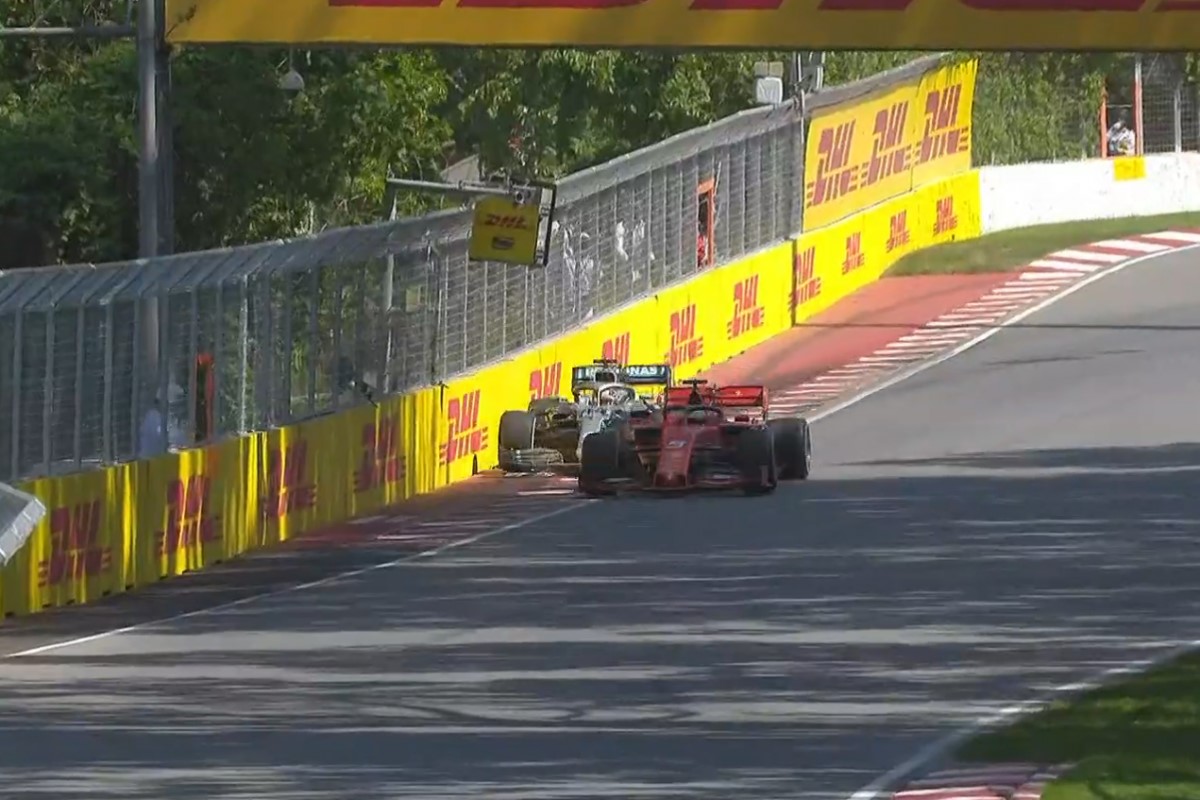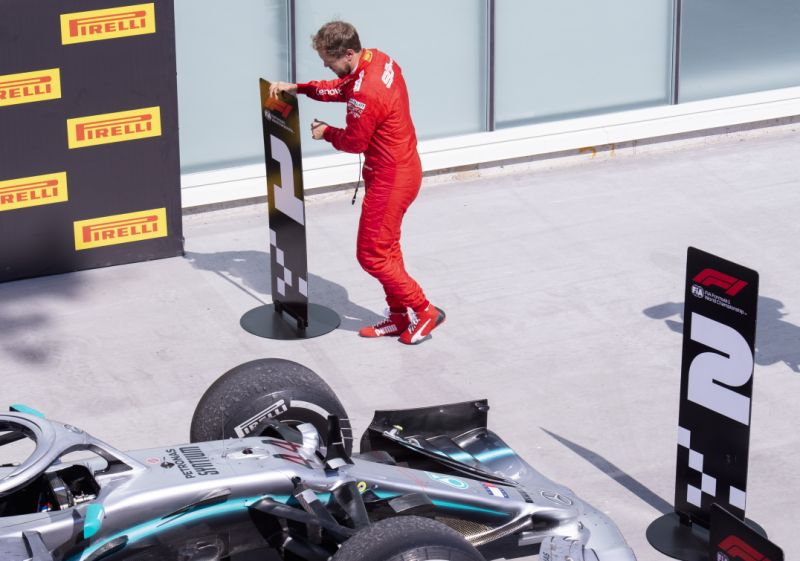Canadian GP Postscript – Vettel’s controversial penalty
 |
| Sebastian Vettel rejoins in front of Lewis Hamilton |
This is normally the spot for my postscript from the previous IndyCar race. And I’ll have a Texas postscript/IndyCar midyear report sometime later this week, as I’ll be out of town the next couple of days.
However, in the meantime, there was some news from the world of Formula One. And I’m going to assume I can forego the cursory background explanation regarding yesterday’s Canadian Grand Prix, in which a very controversial five-second time penalty issued to Sebastian Vettel promoted Lewis Hamilton to the top step of the podium.
Let me start by saying that I am in agreement with the majority sentiment here: I hated the penalty call. It ruined what was shaping up to perhaps be the best Grand Prix of the season with the sport’s two heavyweights going toe-to-toe for the victory.
That noted, I do think it is fair to the stewards to take a look at the rule in question, to determine if it was properly applied. Let’s call attention to Rule 27.3 of the FIA Sporting Regulations:
Drivers must make every reasonable effort to use the track at all times and may not deliberately leave the track without a justifiable reason…
Drivers will be judged to have left the track if no part of the car remains in contact with it and, for the avoidance of doubt, any white lines defining the track edges are considered to be part of the track but the kerbs are not…
[adinserter name="GOOGLE AD"]While the first paragraph is essentially irrelevant to this discussion, the second paragraph leaves no room for interpretation. Vettel “left the track" per the regulations. In leaving the track, the third paragraph was brought into play; and this is where things get interesting.
….Should a car leave the track the driver may (emphasis mine) re"join, however, this may only be done when it is safe to do so and without gaining any lasting advantage. At the absolute discretion of the race director a driver may be given the opportunity to give back the whole of any advantage he gained by leaving the track.
There’s a lot here, but in my opinion the place we need to start is the use of the word “may," which implies permission. Because Vettel left the track he was subject to the regulation stipulating the procedure by which to re-join the track. Thus, he would only have permission to re-join the track when it was “safe to do so." Considering there was an oncoming Hamilton, one could say it was not “safe to do so," and thus, Vettel did not have permission to re-join the track.
But here’s the thing: “safe to do so" implies that a driver has the ability to “do" or “not do" something. In this particular case Vettel lost the ability to control the car when he slid through the grass, essentially removing his agency from the scenario. And could one argue that permission is a moot point when there is no control?
Another element of this is that the rule seems intended for drivers who go off course into a run-off area or gravel trap. In these cases, the driver usually regains control of the car after a spin or slide. After regaining control, the driver then makes a decision regarding when to re-join the track in a safe manner. Vettel, of course, never had the ability to regain control. So, while he may not have had permission per the rule, there was no commission of an act by the Ferrari driver.
Last, it should be noted that the last part of the rule would not apply here in that Vettel gained no lasting advantage from going off track. Essentially, the status quo remained.
So where does this leave things?
 |
| Vettel switches the finish bollards |
Allow me to reiterate that I HATED this call when it was made. I was one of the few hundred million applauding when Vettel defiantly switched the P1 and P2 markers in Parc Ferme (how awesome was that?!).
Also, the rule as currently written needs better clarification at minimum, and more likely drastic revision.
However, as the rule is currently, there is nothing I can see in the regulations indicating that a distinction should be made between the actual intent to commit an act, and the act itself. In other words, the terms for permission are explicitly stated, whereas the nature of commission is merely subject to interpretation. We know Vettel didn’t have permission. Without permission, I’m not really sure commission matters.
And while the motorsports fan in me despises everything about the call, given the way the rule is currently written, I can’t sit here and kill the decision.
More on Vettel…
The penalty on Vettel was one part of the story from yesterday, with the second being Vettel’s reaction post-race. From a certain standpoint, it’s perhaps easy to dismiss Vettel’s comments as sour grapes in the immediate aftermath of feeling like he was robbed of a win. But to me, there was a lot more to Vettel saying things to effect of “ultimately, it’s not the sport that I fell in love with when I started watching," when speaking of modern Formula One.
To me, those comments were not mere momentary bitterness. Those were the words of a man who has become totally disillusioned with his profession. And while I was the first to roll my eyes at the Vettel retirement rumors that have circulated this season, following Sunday, I see those rumors in a new light. More than angry or bitter, Vettel seemed drained; almost detached from the emotion of what happened.
At the very least, I think it’s fair to say that the fresh-faced, wide eyed, smiling young twenty something, who dominated races with apparent ease a decade ago, and seemed destined to rewrite the Formula One record book is now merely a distant memory.
And that’s an unfortunate thing.
Brian Carroccio is a senior columnist for AutoRacing1. He can be contacted at BrianC@AutoRacing1.com
